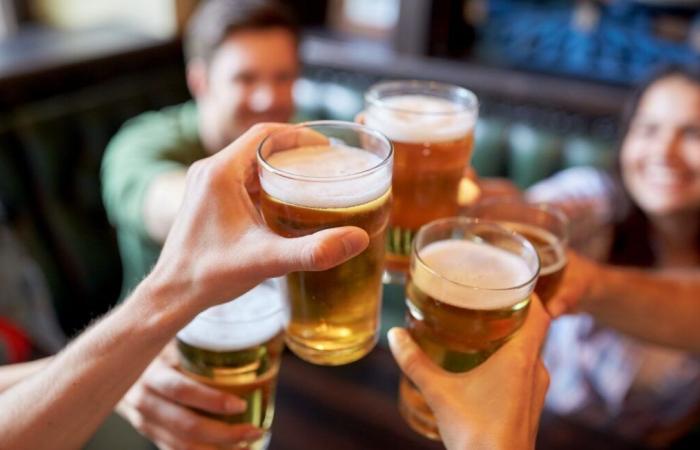“There are people capable of saying crazy sentences: “it’s Friday evening, I’m going to have A glass of wine”… And they succeed,” marvels comedian Roman Frayssinet in his latest show “Ô dans », in which he returns to his addiction to alcohol and cannabis. Like him, you may have already asked yourself the question: why do some people manage to be satisfied with a drink or a joint from time to time while others do it frantically until they develop an addiction?
Know that when it comes to psychoactive substances, we are not all equal. “Addiction is the encounter between a person, an environment and a product,” summarizes Maria Melchior, research director and epidemiologist at Inserm. “People who say that if you smoke cannabis, you will inevitably be addicted are wrong,” assures Laurent Karila, professor of psychiatry and addictology at Paris Saclay University and author of Doctor: Addict or not? (Ed. Harper Collins). Obviously, some products are more addictive than others. But depending on their genetics, their environment, their temperament and their personality, some people will be more likely than others to become addicted. Let’s review these different factors.
Genetics
“If a person in our direct lineage, one of our parents, grandparents or brother and sister is addicted, we have a 40 to 70% greater risk of becoming addicted in our turn,” explains Laurent Karila. “When it comes to alcohol, studies show that our risk is doubled when we have an addicted father,” adds Philippe Batel, addictologist and head of the addiction department at the Camille-Claudel hospital center in La Couronne. According to him, the very rapid loss of control over alcohol consumption is also of genetic and neurobiological origin.
However, there is not a single addiction gene but rather a complex interaction of several genes that increase the risk of addiction. “Genes are expressed or not and give rise to dependence or not depending on the environment,” explains the epidemiologist. If this may reassure some, there is therefore no transgenerational inevitability. Having an addicted parent can paradoxically even be a protective factor. “Among the 18% of French people who never drink alcohol, the most common cause is having a parent who has an alcohol problem,” illustrates Doctor Batel.
The environment
“Addiction is an environmental disease,” adds Professor Karila. Stress, product availability, education and parental behavior will play a role. » Philippe Batel gives the example of chemsex: “A young gay who arrives in Paris and who has a sustained sexuality has a greater risk of becoming addicted to certain synthetic drugs used in the context of this sexual practice, because he evolves in a microcosm where it is somehow validated. »
Professions in which the product is available, such as catering for alcohol or health for molecules, are also added to the list. “Living in poverty, in precariousness or having experienced violence also predisposes to addiction problems, because these are sources of stress,” adds Maria Melchior.
Temperament, personality and psychological illness
There are other psychological factors. “Studies show that people with a rather hyperactive temperament, intolerant of frustration and who seek strong sensations are more at risk,” adds Dr. Batel. Those who are anxious, hypersensitive, introverted or have a depressive tendency are also more prone to addiction.
To learn more about addictions
Having a mental illness also affects this excess risk. “When you have bipolar disorder, the risk of developing an addiction is multiplied by 2.3 for example,” illustrates the head of the addiction department. Last clarification: “For all products or behaviors, the younger you start, the more the risk of dependence increases because you are in some way attacking the brain,” underlines Laurent Karila. Hence the interest in knowing these factors.






